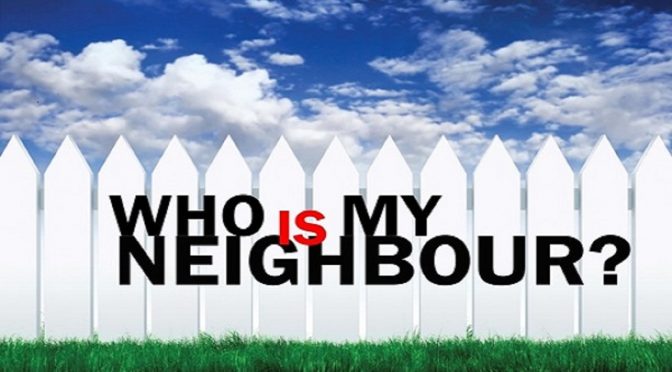Contents
Introduction
This Sunday Gospel (Luke 10:25–37) touches a fundamental question – life after death. It is about the raison d’être of human righteous conduct – the quest for eternal life. The lawyer’s question is both an existential and soteriological questions. Who is not in any way concerned with the hereafter? The concept of eternal life is a universal concept. Although stated differently, every religion and every people believes in the afterlife. According to Hinduism for instance, until a person attains Enlightenment, Samsara will continue. Samsara is a continuous cyclical process of birth, life, death and rebirth. This is the Hindu concept of the transmigration of the soul. The attainment of Enlightenment signifies a person has attained eternal life and will no longer experience samsara.
God’s kingdom and neighbour
There is a link between my relationship with my neighbour and the kingdom of God. Like the Jews, many Christians believe and deceive themselves thinking that observing certain laws, rules and regulations and reciting all the passages of the Bible off by heart are the things needed to please God and make heaven. These are all theory. Unless the laws have practical applications, they are useless and can even become unjust and make those who observe them hypocrites and superficial. Every law and prophet is summarized in do good and avoid evil. This is what Jesus meant when he said to his disciples “in everything, do to others as you would have them do to you; for this is the law and the prophets” (Matt 7:12). Again, in his teachings from the Mount, Jesus said to them “give, and it will be given to you. A good measure, pressed down, shaken together, running over, will be put into your lap; for the measure you give will be the measure you get back” (Luke 6:38). Oh yes! That is the Golden Rule – if you know that which when done to you or said about you, it will pain you, do not do it or say it to another person, because what you give out will definitely come back to you, whether you like it or not. As the saying goes, what goes around, comes around. The way we relate with others has a lot to do with the kingdom of God. Even we master all the laws and memorize all the passages of the Scripture and does not treat others justly, we are hypocrites and empty vessels (cf. Matt 7:21; Luke 6:46).
Conclusion
With this story, Jesus condemns or rather underlines the superficiality of human law and spirituality. Offering a helping hand to the wounded was more important than any other thing. Many Christians and many people are victims of what Jesus corrected with the story in Luke 10:25–37. We must go beyond externalism and superficiality. What nonsense sacrifice was that Priest and his collaborator (the Levite) going to offer when they could not help the needy lying wounded before them? What sort of prayer, vigil, healing are you doing when you cannot give a practical touch and relief to your brother or sister? Your neighbour is another human being and you need not know him or her before you can assist him or her. For the Jews, a neighbour was a fellow Jew. Jesus disagrees and refuses to partake in such discrimination. Discrimination! Are you free from this sin?
FOR DETAILS, GET YOUR OWN COPIES OF THE BOOK “THE WORD OF LIFE:
SUNDAY REFLECTIONS” (vols. I‑II-III)!! The reflection for the 15th Sunday is found in The Word of Life, vol. III, pages 370–382. Happy reading!
For details on how to get it, contact the author on this link: https://m.me/uchennabiblia?fbclid=IwAR2yeg4a6sDGBp9QGkIvKj6FSADumMokN6lshdE0zuo-JHs6qOmlhA7jyHo
or email me at: postmaster@uchennabiblia.com
or simply send an SMS on 08116100926, and I will get back to you.

